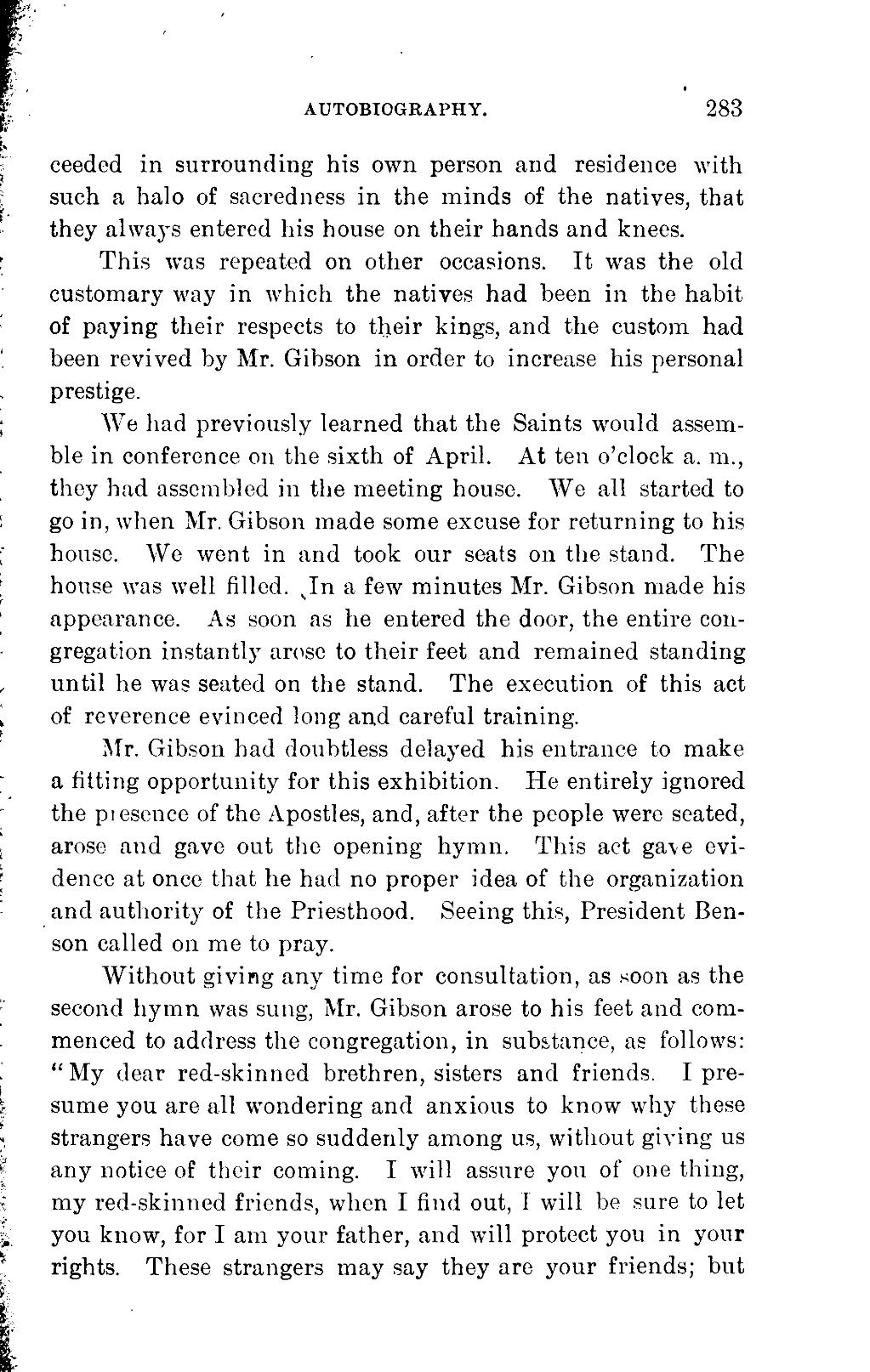ceeded in surrounding his own person and residence with such a halo of sacredness in the minds of the natives, that they always entered his hous on their hands and knees.
This was repeated on other occassions. It was the old customary way in which the natives had been in hte habit of paying their respects to their kings, and the custom had been revived by Mr. Gibson in order to increase his personal prestige.
We had previously learned that the Saints would assmle in conference on the sixth of April. At ten o'clock a.m., they had assmebled in the meeting house. We all started to go in, when Mr. Gibson made some exuse for returning to his house. We went in and took our seats on the stand. The house was well filled. In a few minutes Mr. Gibson made his appearance. As soon as he entered the door, the entire congregation instantly aros to their feet and remained standing until he as seated on the stand. The execution of this act of reverence envinced long and careful training.
Mr. Gibson had doubtless delayed his entrance to make a fitting opportunity for the exhibition. He entirely ignored the presence of the Apostles, and, after the people were seated, aros and gave out the opening humn. This act gave evidence at once that he had no proper idea of the organization and authority of the Priesthoo. Seeing this, President Benson called on me to pray.
Without giving any time for consulation, as soon as the second hymn was sung, Mr. Gibson aros to his feet and commenced to address the congregation, in substance as follows:
"My dear red-skinned brethren, sisters and friends. I presume you are all wonderin and anxious to know why these strangers have come so suddenly among us, without giving us any notice of their coming. I will assure yo ofone thing, my red-skinned friends, when I find out, I will be sure to let you know, for I am your father, and will protext you in your rights. These strangers may say they are your friends; but [p. 283]
